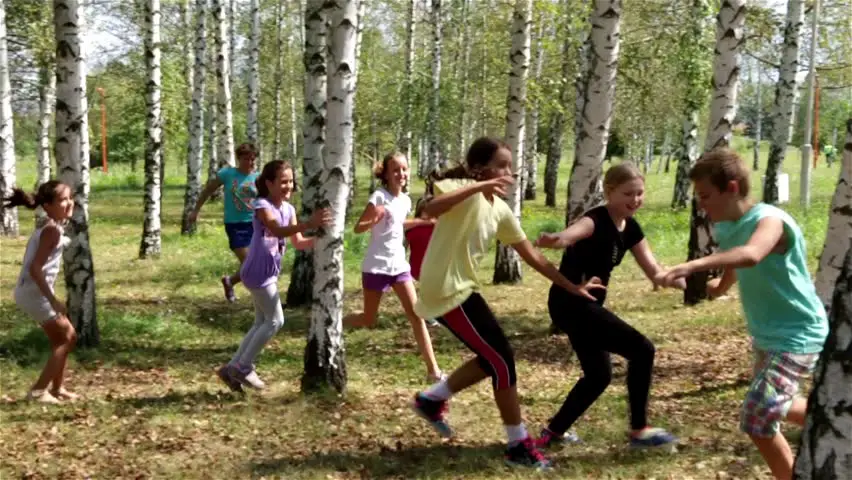Guest writer for Wake Up World
I remember the car ride home when my parents found out my brother skipped school for the first time. We turned the corner and crossed the train tracks as they calmly told him not to do it again.
They weren’t mad. There was no punishment. I couldn’t believe it.
I was a model student. I went to school, got good grades and didn’t cause any trouble. I thought my brother’s behaviour was wrong; he needed to be reprimanded or he’d do it again. Surely my parents needed to exert their control.
But looking back through the lens of a new parent trying to make sense of our modern world for our young son, I understand and surprisingly even applaud my brother’s behaviour. He was trying to take control of his life. It was HIS life after all. Didn’t he have the right to decide how he spent at least some of his time?
Didn’t he have the right to do what made him happy?
[pro_ad_display_adzone id=”110028″]
With the incidence of teenage mental and emotional health issues skyrocketing in most western nations, we need to ask ourselves why. Why are so many of our children unhappy? Some say the issue lies with the fact that medicine has improved and we’re now able to more accurately diagnose psychological conditions. Perhaps teenagers have always been anxious and depressed but we just didn’t recognize it before.
Peter Gray Ph.D, a research professor at Boston College, says that’s not the case: the exponential rise in psychopathology holds even when the measures and criteria for diagnosis are constant. He feels, as do I, that the problem lies not solely with our children, but with the environment we’ve created for them.
Childhood has changed dramatically over the last fifty years; the rules of the game were rewritten by adults, but we never asked our children if they wanted to play. If we ignore external factors and compensate by over medicating, over controlling and over scheduling our kids, the problem will continue to escalate.
So, where did we go wrong and how can we fix it?
The Transformation of Childhood
Nature designed children and adolescents to spend most of their time playing. Vital for for healthy psychological development free play, as described by Gray, is “play which is freely chosen and directed by the participants and undertaken for its own sake, not consciously pursued to achieve ends that are distinct from the activity itself.”
Free play is kicking a soccer ball around a field, shooting basketball hoops in the driveway or riding bikes around the neighbourhood after dark. What do these spontaneous activities have in common? No uniforms, no referees, no competition and no adult-enforced rules. They’re joyful and open-ended, uncovering an enchanting world of endless possibility.
Free play is a magical journey with no destination.
In contrast to adult directed activities which may lay dangerous precedents for the empty pursuit of external validation, unstructured free time provides an arena for adolescents to self-govern, create rules, problem-solve and iron out social conflicts.
A vital ingredient in the framework of childhood, free play cannot be removed without consequences; in it’s absence self-esteem and true independence are built on a shaky foundation. Yet, developmental psychologist David Elkind reports kids have lost more than 12 hours of free time per week in the last two decades[1]. So, ironically, while children need simplicity and freedom in order to thrive, society delivers the exact opposite.
In just a few generations free play has become akin to an endangered species, spelling disaster for teenagers as they’ve lost the only part of their world THEY control. And society is feeling the effects: the average young person in 1960 was eighty percent more likely to claim they had control over their lives than were young people in 2002. While correlation is not definitive proof, many feel loss of personal control leads to feelings of helplessness, predisposing adolescents to anxiety and depression.
Why Have Children Lost Their Freedom?
In short, school and adult supervised activities have become the dominant force in teen’s lives, eroding freedom and undermining an internal sense of control. Be it in the classroom or on the sports field, adults are in charge, not children. Though the premise of education may be honourable, the conventional method of delivery has it’s faults and many parents are questioning the ever-expanding role formal education plays in their kids’ lives.
As unpopular a statement as it may be, school bears many similarities to prison; stealing teenagers’ basic right to freedom and diminishing their ability to direct their own lives. Globally there are calls for even more adult control; to lengthen rather than shorten the school day and year, for recess to be abandoned in favour of academics and for exams to start as young as seven years of age.
In his book Free to Learn, Gray describes a study which evaluates the relative happiness of hundreds of high school students. Unsurprisingly, teenagers were least happy, by a significant margin when they were at school or doing homework. While, they were happiest when they were away from school and interacting with friends.
How can teenagers be happy when they spend most of their time in an environment which is almost designed to produce anxiety?
The metaphorical pressure cooker teens are living in is having an effect; a 2014 American Psychological Association survey found that, during the school year, teenagers experience higher levels of stress than adults. They’re resorting to unprescribed “study drugs” in an effort to stay alert and achieve higher grades.
The Organization for Economic Cooperation and Development (OECD) reports Canada, my home country, has one of the world’s worst truancy rates at twenty-six percent. Attempts to bandaid over the problem by threatening kids is short sighted and counterproductive, serving to disconnect adults further from the youth we need to be closer to.
Sadly, around the world, one quarter of fifteen-year-olds express negative views as to how well they fit in at school. These statistics are significant and can’t be ignored: our kids’ behaviour is telling us there’s a serious problem with the way we expect them to spend their days. It’s not ok and we need to listen.
[pro_ad_display_adzone id=”110030″]
Digging Deeper and Asking Difficult Questions
Conventional schooling is the elephant in the room nobody likes to talk about; it’s a fiercely defended institution, which is controversial to question. Yet, a healthy society is one which encourages free thinking and welcomes the evolution of outdated models into something more constructive.
Positive change starts with brave parents asking the tough questions, in spite of the predictable criticism and resistance of naysayers.
If we replaced fruits and vegetables in our diets with fast food it would be obvious why we’d see a deterioration in our health. Yet, the premise of education is so noble, so heavily ingrained that it’s difficult to realize it’s not serving our children’s mental and emotional health well. Through seeking to protect them, we’ve deprived them of the freedom they need to nourish their growing minds and replaced it with an unhealthy level of adult control; increasing the odds they will suffer from anxiety, depression, and other disorders.
As a teenager, I watched the system fail my family, and learned so many lessons through my experience.
Now, as I watch my own son, overflowing with natural curiosity, I don’t want to see it squashed by a treadmill of formal education which may be mismatched to healthy human development. I’m excited to see where this unknown path leads our family as I endeavour to understand how young minds develop and what is needed to feed happy souls. I crave making informed decisions for my son, and hope to help those in our Raised Good community who are on a similar journey of discovery.
This article only scratches the surface of a monumental topic, but all we need is a spark to start the conversation. I’ll follow this post up in the near future, but if you’re hungry for more information I highly recommend reading Free to Learn by Peter Gray and watching his TED Talk, The Decline of Play and Rise of Mental Disorders.
About the author:
 I’m Tracy Gillett, a passionate writer, mother, global nomad and natural parenting advocate. I founded the natural parenting website Raised Good, a heart-driven platform to provide parents with sound, well thought out, scientifically backed advice. If you resonated with this article you may like to subscribe to my monthly newsletter and you’ll receive a free copy of my eBook Parenting by Nature which will help free you from the “rules” of modern parenting. Originally from Australia, I now live in Vancouver, Canada, with my husband and young son. You can also find me on Facebook, Twitter and Instagram.
I’m Tracy Gillett, a passionate writer, mother, global nomad and natural parenting advocate. I founded the natural parenting website Raised Good, a heart-driven platform to provide parents with sound, well thought out, scientifically backed advice. If you resonated with this article you may like to subscribe to my monthly newsletter and you’ll receive a free copy of my eBook Parenting by Nature which will help free you from the “rules” of modern parenting. Originally from Australia, I now live in Vancouver, Canada, with my husband and young son. You can also find me on Facebook, Twitter and Instagram.
A warm welcome for Wake Up World readers, from Tracy.
Please note: This article originally appeared on Raised Good.
[pro_ad_display_adzone id=”110027″]








